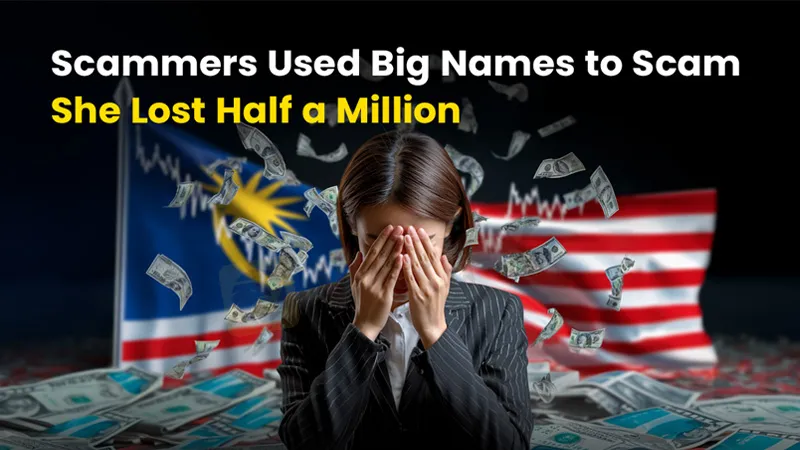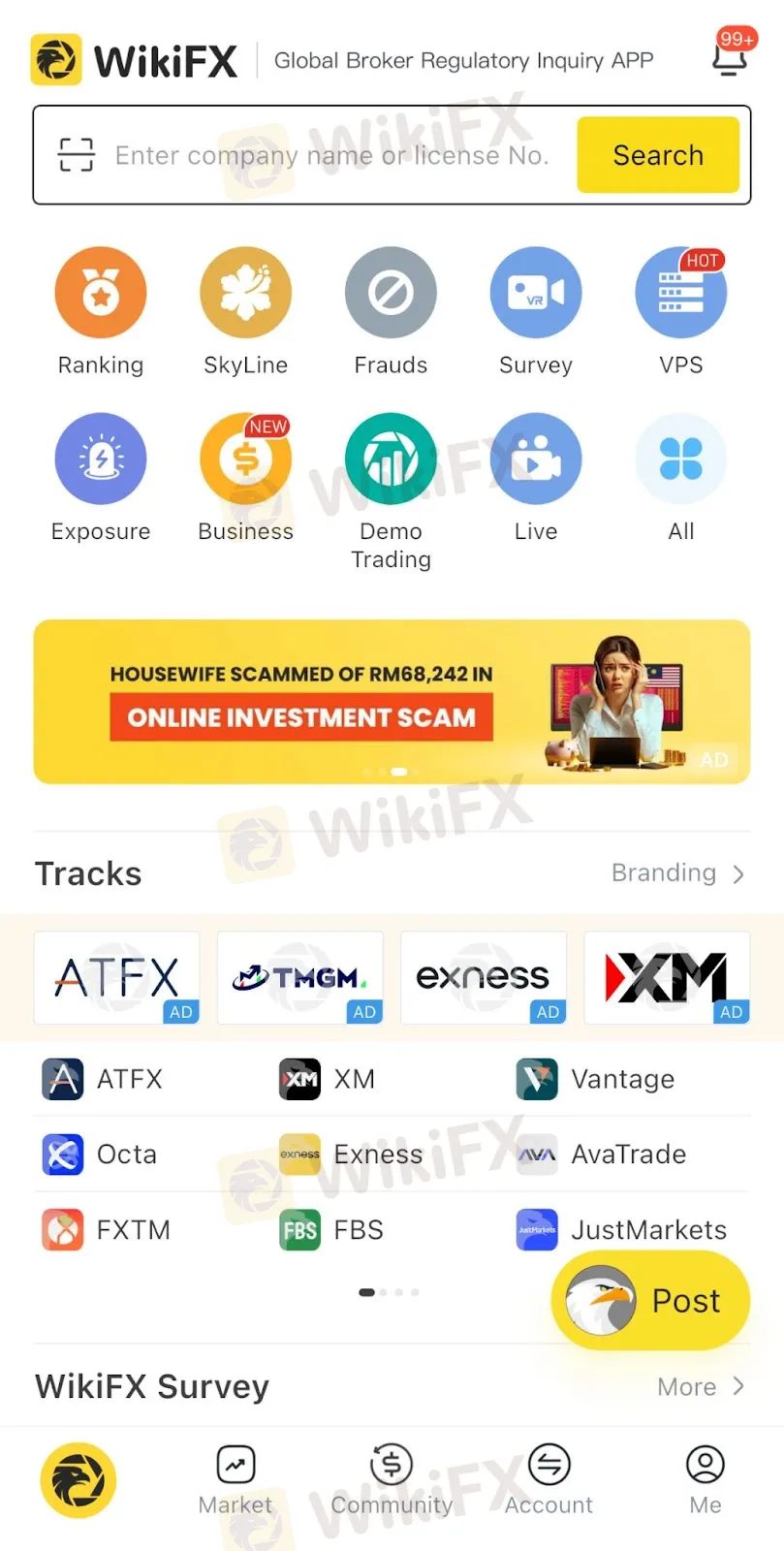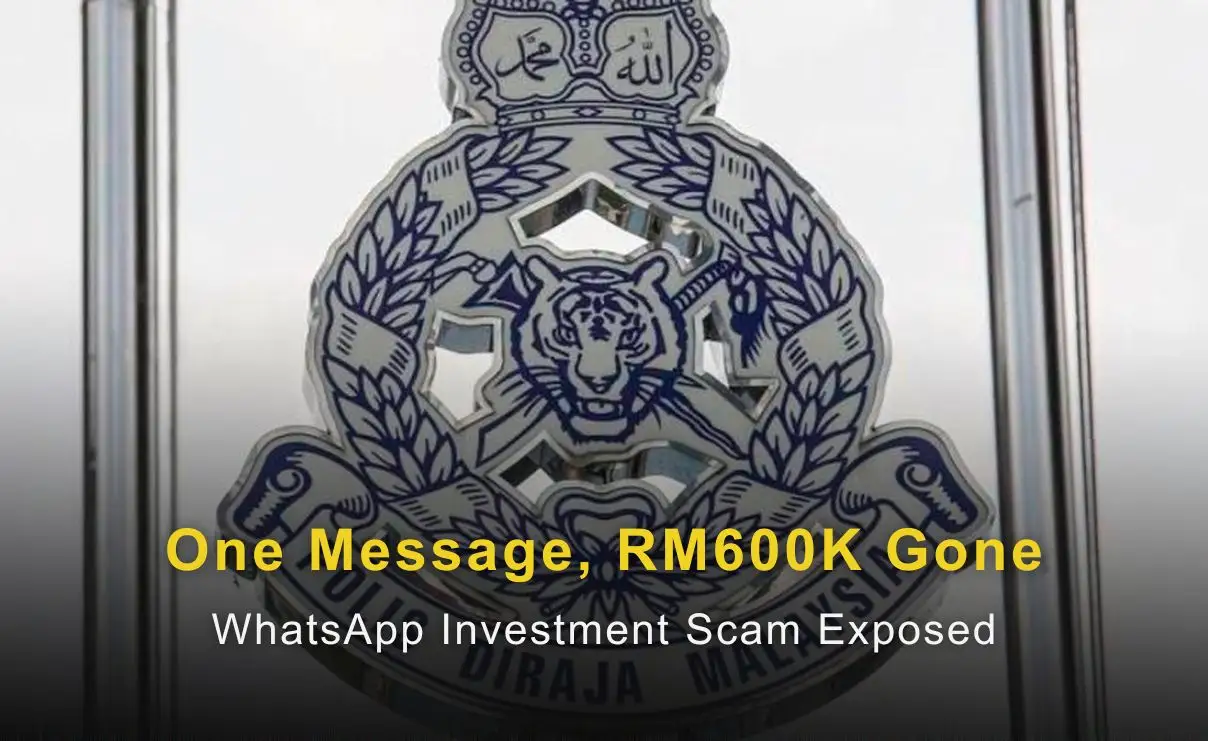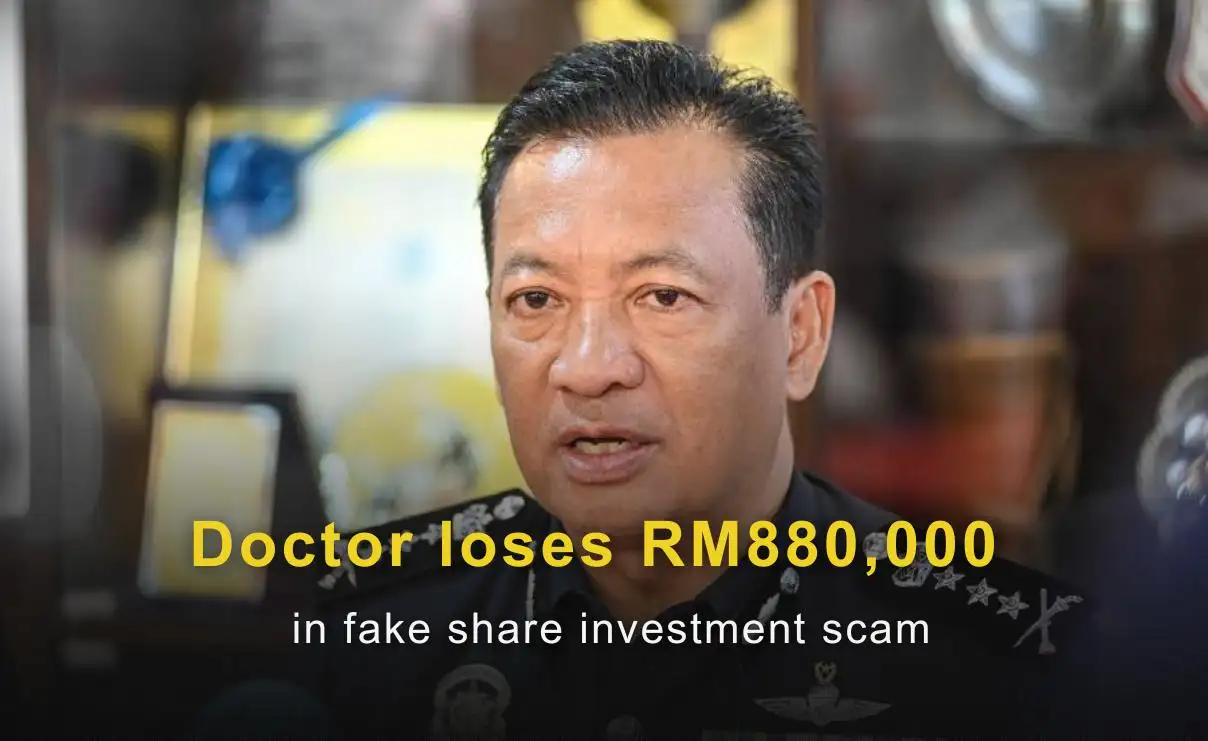One Message, RM600K Gone: WhatsApp Investment Scam Exposed
A 71-year-old property consultant in Pahang lost RM622,161 after being tricked by a fake investment scheme promising 50% profits via WhatsApp.
简体中文
繁體中文
English
Pусский
日本語
ภาษาไทย
Tiếng Việt
Bahasa Indonesia
Español
हिन्दी
Filippiiniläinen
Français
Deutsch
Português
Türkçe
한국어
العربية
Abstract:A Malaysian doctor has lost RM468,000 after falling for an online investment scam promoted on Facebook. She believed it was an advertisement from a well-known investment company, but it turned out to be a fake operation in which scammers had misused the company’s name.

A Malaysian doctor has lost RM468,000 after falling for an online investment scam promoted on Facebook.
Police in Pahang said the 55-year-old victim first came across the advertisement in May. She was later contacted by someone pretending to represent Nikko Asset Management, a well-known investment company based in Tokyo with offices worldwide. The scammer used the companys name to appear legitimate.
The woman was told she could earn between 80 and 128 per cent in returns within just a month. Believing the promise, she began transferring money taken from her Employees Provident Fund savings. Between 17 June and 6 August, she made 14 transfers to four different bank accounts.
To make the scam look real, the suspect sent her fake profit statements showing her investment had grown to RM800,000, including the original capital. Later, she was asked to pay another RM152,725 as “taxes” before she could withdraw her money. At this point, she grew suspicious and stopped making payments.
She then filed a police report at the Kuantan District Police Headquarters. The case is being investigated under Section 420 of the Penal Code, which deals with cheating. Authorities confirmed that Nikko Asset Management had no part in the fraud and that its name had been used without permission.
This type of scam is becoming more common, with criminals using well-known brand names to win trust. The promise of very high and fast returns is often the first warning sign, but many victims are convinced by official-looking documents and professional presentations.

Experts say that investors can protect themselves by checking the background of any broker or platform before sending money. Tools such as WikiFX can help with this. The service offers a global database of brokers, along with details of their licences, user reviews, and warnings about unlicensed or suspicious firms. By using resources like these, investors can spot danger early and avoid losing their savings.

Disclaimer:
The views in this article only represent the author's personal views, and do not constitute investment advice on this platform. This platform does not guarantee the accuracy, completeness and timeliness of the information in the article, and will not be liable for any loss caused by the use of or reliance on the information in the article.

A 71-year-old property consultant in Pahang lost RM622,161 after being tricked by a fake investment scheme promising 50% profits via WhatsApp.

A Terengganu company director lost RM2.95 million after being lured into an online investment scam promising high returns. The fraud, introduced through a social media contact, was only uncovered when the victim failed to withdraw the supposed profits, prompting a police investigation.

A doctor in Pahang lost over RM880,000 in a fake share scheme promising high returns

A Kuching man lost RM728,800 after being lured by a fake share investment advertised on social media, later discovering the scheme was non-existent when he was unable to withdraw the promised returns.
